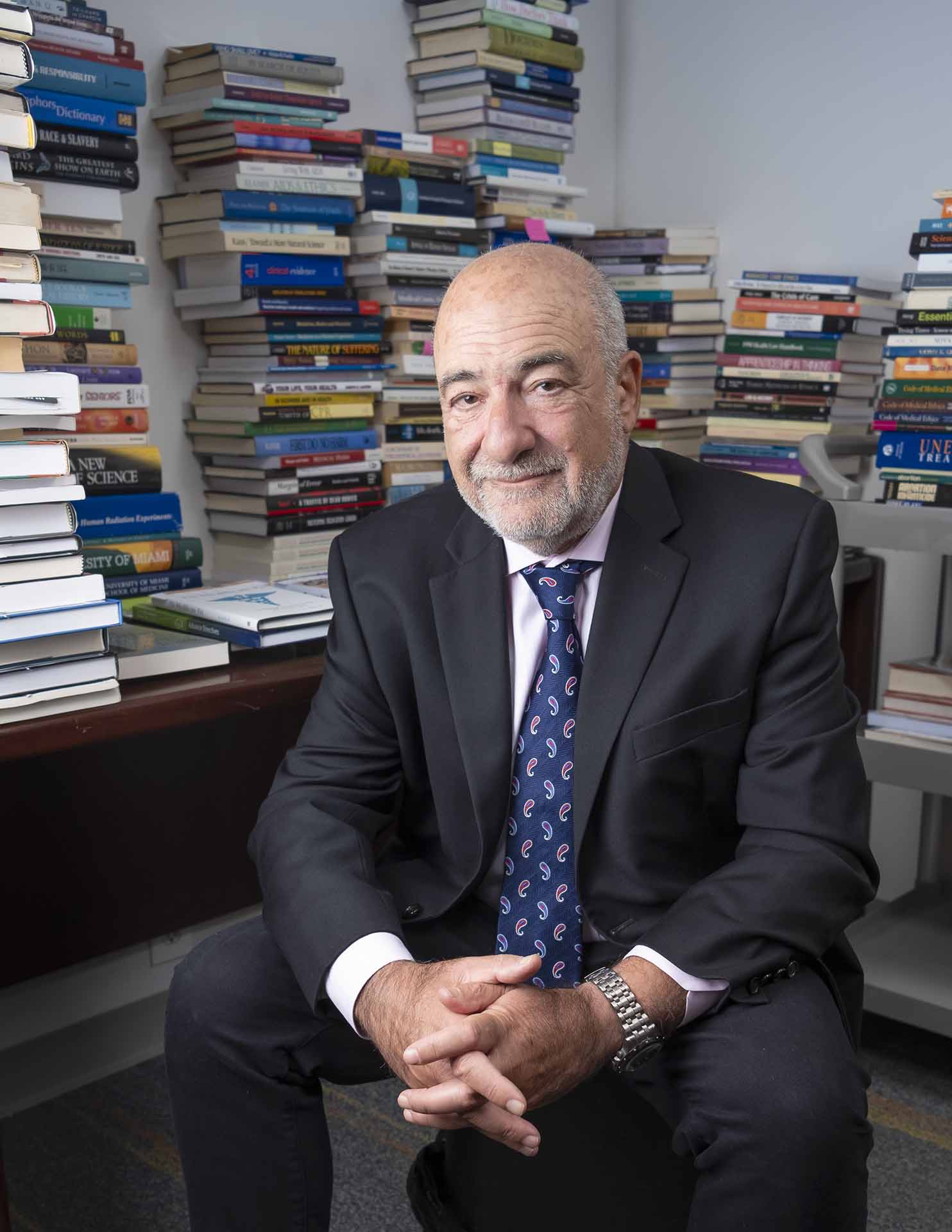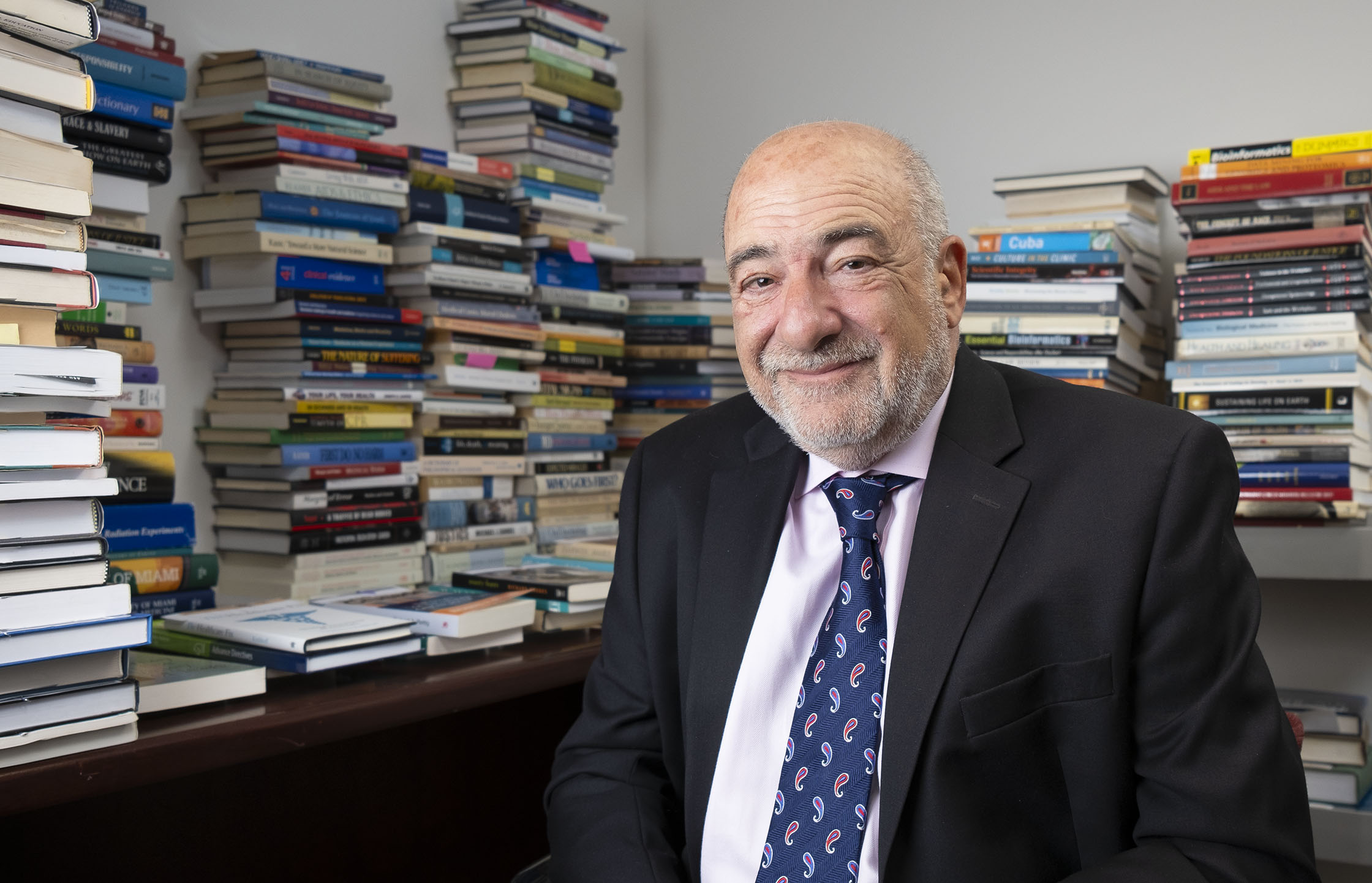A Global Ambassador for Bioethics
Dr. Sergio Litewka strengthens research ethics and scientific integrity throughout Latin America
By Bob Woods
Photography by Tom Salyer

Sergio Litewka, M.D., M.P.H.
S
ergio Litewka, M.D., M.P.H., is an associate professor in the Miller School’s DeWitt Daughtry Family Department of Surgery, and director of global bioethics for the School’s Institute for Bioethics and Health Policy. In the latter role, he collaborates with governmental organizations, universities and the private sector, mostly in Latin American countries, to foster initiatives for strengthening research ethics and scientific integrity.
What is research integrity?
The National Institutes of Health defines it as the use of honest and verifiable methods when proposing, reporting or evaluating research. It is about managing scientific investigations in an ethical way according to universally accepted scientific standards. That involves, for instance, how you write a research paper, how you manage conflicts of interest in research projects and how you manage data, as well as avoiding harms to human subjects and laboratory animals.
Your teaching and research interests include artificial intelligence. What are the ethical questions you’re most concerned about regarding the benefits and potential dangers of AI?
There are concerns about government systems and applications of AI in health care and research in terms of how it is managed. For example, people writing research papers can use generative AI to improve their productivity, but at the same time, there is a risk of plagiarism and misattribution of text. The Institute for Bioethics is a World Health Organization collaborative center, and we are part of the conversations about developing guidelines and best practices for the ethical use of AI in health care.
How do you avoid appearing arrogant when collaborating with officials in developing countries?
We do not tell them that they should do things the way we do them in the U.S. We talk about universal norms surrounding research integrity that can be adapted to their local frameworks. Whether in China, Iran or the United States, science much follow the same standards of honesty, impartiality and lack of bias. ![]()



